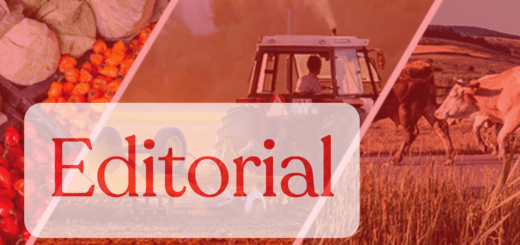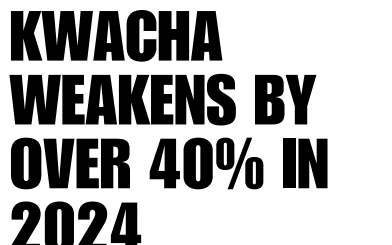Protecting Corrupt Government Officials
Zambia’s government, which once rode the wave of anti-corruption rhetoric, now seems blind to the very rot festering within its own ranks. The paradox of condemning corruption while sheltering the corrupt is both astonishing and disappointing.
As past wrongdoings are targeted, the corrupt activities of present government officials continue, shielded by layers of power and influence.
It is undeniable that fighting corruption from previous regimes is critical to accountability and justice. However, current corruption must be fought with equal, if not more, fervor. Yet, the reality tells a different story.
Senior government officials today are embroiled in corruption, and it is difficult to believe that the Head of State, with access to state intelligence, is unaware of their activities.
One example is glaring. A high-ranking minister and his permanent secretary were bribed by a figure central to a fuel tanker project. This individual, well-known for corrupt practices, lavished these officials with cars and household goods in exchange for him to continue the project.
When the situation became too hot, the individual fled Zambia, escaping any legal consequences. The silence that followed from government agencies in pursuing him speaks volumes. The reason? Many high-ranking officials are implicated and benefited financially from this figure’s corrupt dealings.
Even more damning is the existence of CCTV footage showing some officials from very high offices of the land, receiving bribes. With such evidence , why has no action been taken?
Why is there no rush to bring this individual back to face justice? The answer is clear: too many officials are ensnared in this web of corruption. Their silence is purchased by the dirty money flowing through government corridors.
In another case , some senior government officials have been taking bribes to delay the prosecution of a wealthy businessman facing legal troubles with the state. These are not isolated incidents. It is a trend—a cartel within government whose members use their positions to enrich themselves at the expense of justice.
Perhaps one of the most profound disappointments is the failure to address the procurement scandal involving the Presidential Challenger aircraft. President Hichilema had boldly promised that all individuals involved would face the law.
Yet, nearly three years later, none have appeared in a Zambian court. The few whispers about this case have disappeared, swept away by a judiciary that has been “oiled” by corrupt money. In today’s Zambia, justice can be bought for the right price.
Another striking case came to light when the president himself disclosed that a single individual was found with $25 million in cash. Yet, no names have been made public, and no one has been arraigned before the courts.
Could this silence be the price for freedom? The government recovers a portion of the loot, and the thief enjoys the remainder in peace. Such scenarios suggest that as long as one steals big enough, the consequences are minor, and the rewards immense.
The corruption in the fuel sector is yet another open secret. Ministers and senior officials have formed cartels, manipulating procurement processes to line their pockets.
These deals, worth millions of dollars, have gone unchecked. The president cannot claim ignorance. If ordinary citizens are aware, surely he is in possession of more damning evidence than we can imagine. Yet, action is absent.
The rot extends beyond fuel procurement. In the allocation of hunting concessions, we see the same story. Some individuals, well-connected to government officials, have already begun harvesting Zambia’s wildlife without hunting permits , knowing that when the time comes, their illicit activities will be “regularized” by the very officials meant to prevent such theft.
Equally shocking is the false narrative surrounding the Mukula trade. While the government insists the trade has been halted, senior officials and ruling party members continue to benefit from the illegal sale of this precious resource.
It is not just Mukula—gold and Sugilite are also being traded through corrupt networks, yet the government turns a blind eye. The complicity is appalling.
Perhaps the most worrying trend is the erosion of justice. Today, in Zambia, befriending a judge can buy you a consent judgment. The judiciary, meant to be a bulwark of fairness, is now for sale, and justice is a commodity available to the highest bidder.
This is not the Zambia we envisioned after the 2021 elections. We had hoped for a nation where corruption would be tackled head-on, and justice would be blind to wealth and influence. Yet, it seems we have merely shifted the beneficiaries of corruption from one group to another.
President Hichilema’s administration promised Zambians a new dawn, a departure from the corruption that had plagued the nation. But what we are witnessing is a continuation of the same practices, cloaked in new rhetoric.
The president may continue to make anti-corruption pronouncements, but his actions—or lack thereof—betray the truth. Only past corruption is being scrutinized, while the corruption happening now is being conveniently ignored.
Zambia deserves better. The country is grappling with extreme poverty, and every kwacha stolen through corruption is one less that could have been used to uplift the lives of ordinary citizens.
The battle against corruption must not be selective. It must be fought on all fronts, past and present. Zambians are watching, and we are losing patience.
Is this the legacy this government wants to leave? A nation where corruption thrives in plain sight, and justice is up for sale? Or will President Hichilema finally act against the corruption happening under his very nose?
Zambians deserve better. It’s time for action, not more empty promises.








